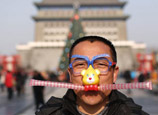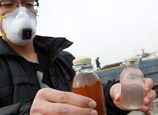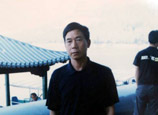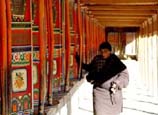
"ASEAN members have a comparative advantage," said Liu Jiangyong, a specialist on Japanese studies and the deputy dean of the Institute of Modern International Relations at Tsinghua University.
Tokyo is eager to restore its influence in the region, said Yang Bojiang, a Japanese studies specialist at the Chinese Academy of Social Sciences.
"Southeast Asia is like a backyard for Japan, and the region also hosts key shipping routes.''
The visit to Hanoi is not a coincidence, Liu said.
Choosing Vietnam for a Japanese leader's first trip abroad is a strategic decision to rein in China, Liu added.
Prominent figures from both ruling and opposition parties have come to China in a bid to ease the tension.
China's top political adviser Jia Qinglin held talks on Wednesday with visiting former Japanese prime minister Yukio Hatoyama.
Jia said Beijing looks forward to developing ties and both countries should handle differences through dialogue, Jia said.
Hatoyama agreed and said both countries should boost cooperation.
On Monday, Kenji Kosaka, a lawmaker from Japan's ruling Liberal Democratic Party met with Vice-Foreign Minister Fu Ying in Beijing.
Kyodo said Japan's New Komeito party leader Natsuo Yamaguchi will visit China on Tuesday.
New Komeito are in coalition with the LDP.
But Abe has allowed members of his Cabinet to go on a series of visits to Southeast Asian countries and Australia in January.
"The Japanese government is trying to solidify its relations with other countries in the region and strengthen its bargaining power before talking to China,'' Narushige Michishita, an associate professor at the National Graduate Institute in Japan, told Reuters.

















 'Sister House' case urges efforts in combating corruption in affordable housing
'Sister House' case urges efforts in combating corruption in affordable housing


![]()
